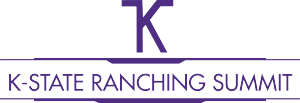Logan Thompson, Sustainable Grazing Systems
Today, the beef industry is increasingly facing calls to act on its perceived impact on climate change and other negative ecological impacts that occur from production activities. This includes greenhouse gas emissions, soil degradation, eutrophication of water ways (accumulation of nitrogen, phosphorus and other nutrients) and a decrease in biodiversity. It may come as a surprise to some that the largest source of greenhouse gases from beef production arises from our grazing operations. Chiefly this is from the cow-calf sector and primarily in the form of methane produced during the ruminal fermentation process (Rotz et al., 2019). If we consider that methane production is primarily driven by level of intake and quality of the diet, then this does make sense as many cows are grazing for the entire year, generally, all the while consuming a lower quality diet than fed in confinement operations and weaning approximately 0.85 calves per cow exposed per year. However, these estimates may not tell the complete story of the ecological niche that grazing cattle play in our grassland ecosystems or how their emission estimates compare to historical or current wildlife populations. Continue reading “Accounting for the environmental impact of grazing cattle: appreciating our ecological niche”
